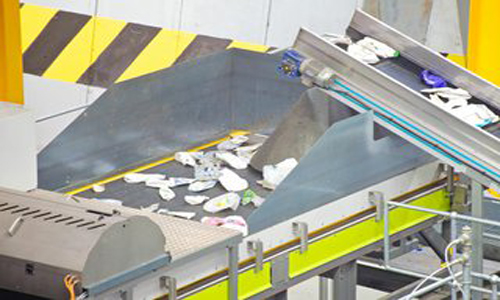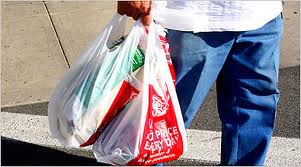An editorial last week in The Oregonian concludes that the Legislature has a choice: Adopt a flawed bill that bans plastic grocery bags and imposes new fees on Oregon shoppers or do nothing at all to reduce plastic litter. That’s a false choice.
Oregon can reduce litter without short-sighted bans, fees and fines that punish shoppers. With true bipartisan leadership and cooperation among retailers, recyclers and plastics manufacturers, we can reduce litter through comprehensive plastics recycling that also creates jobs.
The history of litter reduction in Oregon is embodied in our state bottle bill. We proved that market incentives, industry cooperation and Oregonians’ commitment to “keep Oregon green” are the foundation for effective legislation. Regrettably, the current proposal — which would ban plastic bags used at grocery checkout stands (Senate Bill 536) while exempting all other plastic bags, films and packaging materials — is based on limiting consumer choice, banning a convenient, reusable, recyclable product and imposing new fees and fines on shoppers.
There is a better way. An aggressive statewide recycling program that includes plastic bags, wraps and other plastic packaging materials would reduce litter while creating jobs. The current proposal would do neither.
Beyond the obvious, the ban proposal is further flawed: It only addresses plastic grocery bags when these bags make up less than 2 percent of all litter, according to the federal Environmental Protection Agency. A recent SOLV beach clean-up found that plastic bags made up 4 percent of the total haul. No amount of litter is acceptable, but a ban on plastic carryout bags that only applies to big retail grocery stores isn’t the solution. A recycling program that’s convenient and accessible to more Oregonians and captures all carryout bags and other plastics is the right choice.
SB536 also places the full burden on shoppers — not retailers or manufacturers — by limiting choice and mandating a fee to grocery bills or forcing Oregonians to purchase more expensive grocery bags. There are also hidden costs: Shoppers will need to buy other plastic bag products for trash liners, pet waste and other common household uses. Unlike plastic grocery bags that can be recycled, many checkout alternatives are made of heavier gauge, non-recyclable plastic, thereby introducing more plastic into the environment and litter stream.
Furthermore, why is there a proposal to ban a 100 percent recyclable product? Plastic bags are made with natural gas harvested in the U.S. and can be recycled. In fact, they are being recycled in facilities across the country, including Oregon. This industry is growing to keep up with the demand from manufacturers who increasingly want to use recycled plastics in their products. If Oregon adopts a comprehensive statewide plastics recycling program it will attract private investment by companies looking to enter this growing field. A ban fails on this front, too, hurting Oregon plastics recyclers and signaling that Oregon is not open for business.
The stated purpose of SB536 is to reduce plastics litter. No one is arguing against that objective. But bans, fees and fines will not move Oregon toward a cleaner, greener state. A bipartisan approach that continues Oregon’s leadership role in recycling will.
As we did with bottle litter, Oregon has the opportunity to lead the nation once again. So the real choice is between backward policies based on fines, fees and bans that punish consumers or forward-looking policies that make it easier for Oregonians to recycle plastic materials, reduce litter and create jobs.
Source : www.oregonlive.com







